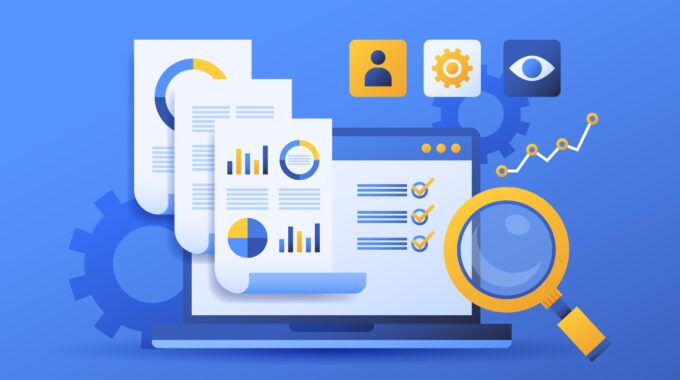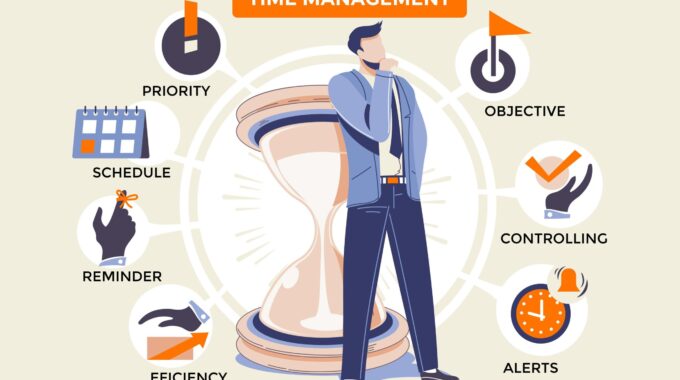This article delves into the pivotal role of Franchise Management Software in streamlining operations and…

The Future of Project Management Software: Trends and Predictions for 2023 and Beyond
Introduction
In the era of digital advancement, organizations have seamlessly integrated project management software as an essential tool to streamline operations, enhance collaboration, and drive project success. With technology’s relentless progress and evolving business landscapes, the future of project management software stands poised for transformative changes. The focus of this article is to examine the trends and predictions for project management software in the coming years. It aims to shed light on how these imminent developments will not only reshape project conception, execution, and monitoring but also redefine the very nature of these processes.
Active Collaboration and Communication:
Taking center stage within the realm of project management software is active collaboration and communication. Gradually, traditional project management tools are yielding to platforms that enable real-time interactions among team members, regardless of their geographical locations. These solutions ought to provide simplified document sharing choices, integrated chat features, and video conferencing capabilities. This synthesis, in turn, will seamlessly foster a culture of collaboration, effectively bridging any existing communication gaps.
AI-driven Automation:
Revolutionizing project management, artificial intelligence (AI) through automation is at the forefront. Automating repetitive chores like scheduling, allocating resources, and tracking progress gives project managers more time to make strategic choices. AI-powered algorithms are poised to meticulously analyze extensive historical project data, extracting invaluable insights. These insights, in turn, have the power to anticipate potential obstacles, optimize project timelines, and elevate the efficacy of overall project management strategies.
Facilitating Remote Work:
The surge in remote work necessitates adaptable project management software for geographically dispersed teams. The forthcoming platform introduces virtual workspaces or digital realms. This is where team members collaboratively engage on projects, access resources, and monitor progress from any corner of the globe. This visionary platform has the capability to effectively gauge remote team efficiency. It gracefully handles time zone discrepancies, and facilitate efficient global communication channels.
Enhanced Data Analytics:
The bedrock of the forthcoming project management software lies in data-centric insights. Advanced analytics technologies are on the brink of a transformation that will metamorphose raw project data into actionable intelligence. Project managers will have the knowledge necessary for making wise decisions as a result of this transforming process. Of noteworthy significance, predictive analytics will emerge as a pivotal asset, spotlighting potential risks and opportunities and thus enabling proactive adaptations to the evolving dynamics of projects.
Personalized User Experience:
In the evolutionary path of project management software, user experience takes centre stage. Future systems may support user-cantered interfaces tailored to individual preferences. Customizable dashboards, user-friendly navigation, and personalized notifications collectively offer users a plethora of options. It enables them to craft their project management experience in alignment with their specific requirements.
Integration and Compatibility:
At the core of the imminent future of project management software lies seamless integration. These software solutions are ready to seamlessly integrate with other critical business tools, including CRM, ERP, and accounting systems. We expect this upcoming wave of integration to create a smoother flow of information across departments. It will eliminate data silos, and increase organizational efficiency through synergies.
Security and Data Privacy:
Against the backdrop of an era punctuated by data breaches, the future of project management software assumes a vigilant stance toward security and data privacy. Forthcoming platforms will implement robust encryption mechanisms, multifactor authentication protocols, and unwavering compliance with data protection mandates. Businesses will inevitably choose software programs that protect the privacy and confidentiality of sensitive project-related data.
Predictions for the Future:
Rise of Hybrid Approaches: Organizations are projected to adopt hybrid project management methodologies, seamlessly amalgamating traditional and agile methodologies. The driving impetus behind this convergence is the adaptive project management software that will fuel these innovative approaches.
Ecosystem Collaboration: The future landscape of project management software hinges upon a comprehensive ecosystem of interconnected tools. This holistic ecosystem is anticipated to usher in a frictionless data flow, opening doors to amplified collaboration opportunities.
Virtual Reality Integration: Project management software will gain immersive capabilities thanks to the impending incorporation of virtual reality. We anticipate that this immersive aspect will play a crucial role in project design, planning, and stakeholder engagement by improving visualization and comprehension.Project management software can be subject to significant changes that can change the way projects are planned and executed.
Blockchain for Transparency: Blockchain technology is ready to infiltrate the field of project management and provide an unmatched level of transparency. The immutable ledger of project-related transactions and decisions holds the potential to elevate transparency to unprecedented heights.
Embracing the Future:
To optimally leverage the spectrum of benefits arising from these projected trends, organizations are encouraged to adopt proactive strategies:
Continuous Learning: Project managers and their teams should consistently stay attuned to emerging technologies and trends in project management software, positioning themselves at the forefront of industry developments.
Vendor Evaluation: An astute approach involves a meticulous evaluation of software vendors, considering their alignment with projected trends and long-term viability.
Adaptability: As the software world changes, we recommend that companies create an environment where people can proactively adapt to new project management techniques.
Conclusion:
Project management software may be affected by significant changes that have the ability to alter how projects are planned and carried out. Anchoring this evolution are active collaboration, AI-driven automation, remote work facilitation, enhanced data analytics, personalized user experiences, integration prowess, and unwavering data security. These facets collectively shape the landscape of project management software for the year 2023 and beyond. Organisations that proactively adopt these emerging trends will have an advantage over their competitors by improving project outcomes, fostering innovation, and deftly adjusting to the complex modern business environment.. As technology’s tapestry continues to unfurl, the journey ahead for project management software is one that promises excitement and a multitude of opportunities for organizations to flourish.
About Apoorva:
Apoorva is a technology services company that assists software products with ideation, developing prototypes, programming, creating a digital marketing presence and accelerating sales through direct contact. Over 150 for-profit and non-profit organizations, such as Xcel Energy, PeopleCare Health Services, Frontier Airlines and Centers for Spiritual Living have trusted Apoorva to build software.
Apoorva was founded in 2001, has more than 50 employees, and uses proprietary and proven methodologies to bring technology products to the market. Contact us / Visit apoorva.com for more information.




